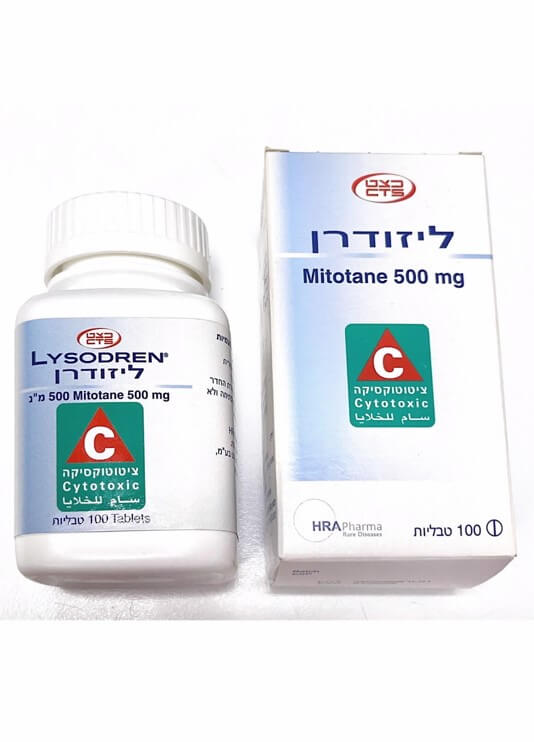This text is for informational purposes only. Please consult a doctor or pharmacist before using any medication.
Read the information leaflet that comes with the medication.
Most people who use Lysodren do not experience any negative side effects. Doctors prescribe Lysodren because they assess that the benefits that such treatment yields outweigh any likely unwanted effects.
There can be serious side effects, which should be referred back to the treating doctor because these may be indications of complications for which some remedial medications may be appropriate. The symptoms include:
- Fatigue, abdominal pain, nausea, vomiting, diarrhea, confusion (signs of adrenal insufficiency)
- Pale skin, muscular fatigue, breathlessness, vertigo (dizziness) mainly when rising from a sitting position (signs of anemia)
- Yellowing of the skin and eyes, itching, nausea, diarrhea, fatigue, dark colored urine (indicative of liver damage)
- Movement and coordination disorders, abnormal sensations like pins and needles (tingling), memory loss, loss of concentration, difficulty in talking, vertigo (indicative of neurological disorders)
Some of the common side effects that have been reported include:
- Anorexia
- Nausea
- Diarrhea
- Vomiting
- Impaired memory
Not all side effects are listed here. If these or other unlisted symptoms persist or worsen, consult a healthcare provider or pharmacist.
The most common symptoms of Cushing syndrome are gaining weight the trunk or face, while still having thin arms and legs. There can be a fatty lump between the shoulders, or colored stretch marks on the stomach, hips, thighs, breasts and underarms. The skin can become thin and frail, and bruises easily, with slow wound healing. Acne can also break out.
The sypmtoms of ACC resemble some of the above, as well as trouble sleeping, pain in the abdomen or lower back, and weight loss or loss of appetite. In women, there can be a deepening voice and increased hair growth, usually on the face.
Adrenocortical cancer and Cushing’s syndrome can be diagnosed with blood tests to determine hormone levels, as well as imaging and saliva tests. Differentiating between adrenal cancer and Cushing’s syndrome requires a special test known as Liddle’s test.













